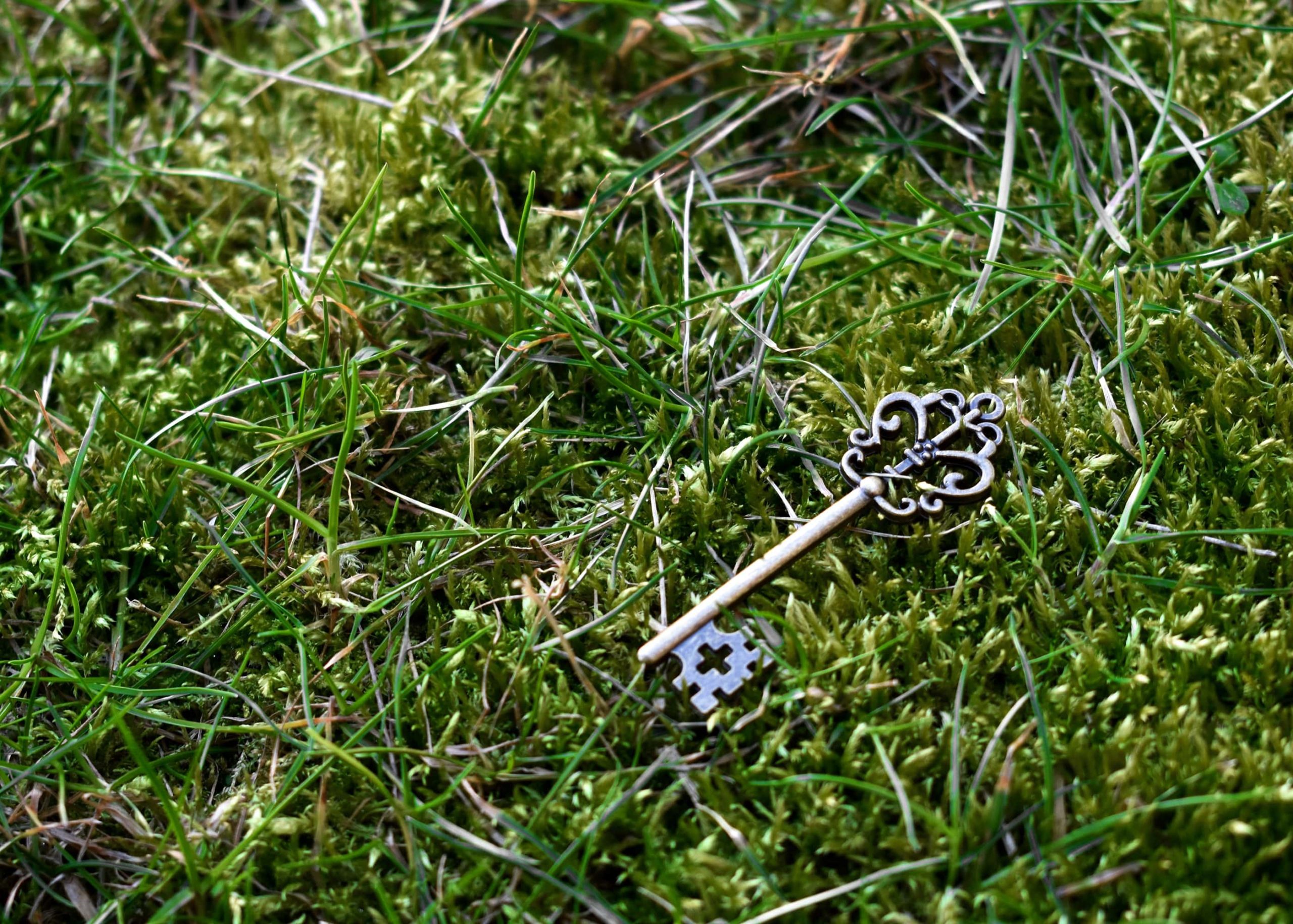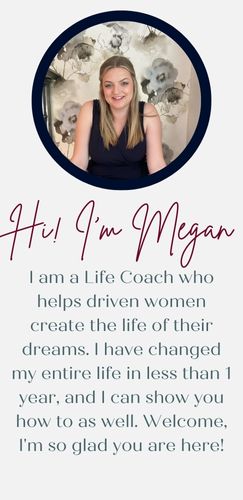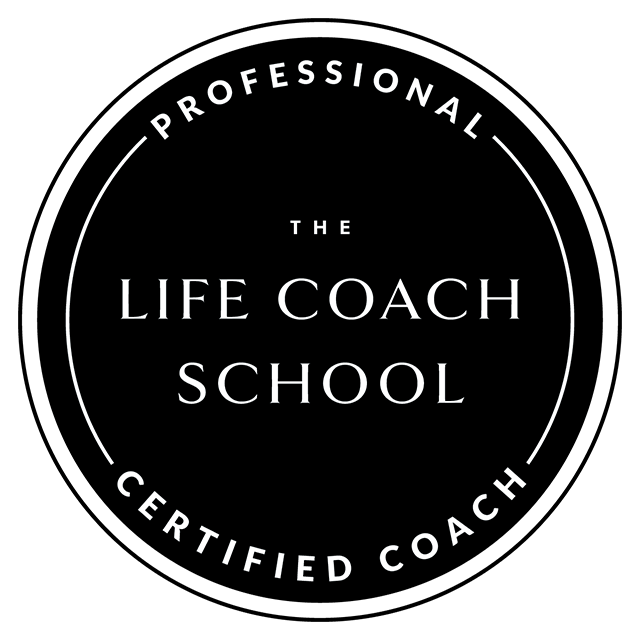Have you ever questioned why you do what you do? It is usually because we crave some specific type of outcome.
How do we achieve these outcomes?
Commonly, people will say that to achieve an outcome you have to change your actions. That changing our actions will create the desired results in our lives.
This way of thinking is very much based on cause and effect. For example – I don’t like my weight. So, in order to change how I feel about my body, I will lose weight. I will start dieting, recommit to exercise, not eat too many sweets. Cause = not enjoying weight. Effect = lose weight and associated actions.
The problem with this way of thinking, however, is that rarely is this enough to create lasting results in our life.
This way of thinking – I call it causal thinking – is reacting to the set of circumstances in your life and attempting to change those circumstances. Often not for the result itself, but for the feeling that we think it will give us.
In the weight example, I wouldn’t really be losing weight for the sake of having less fat on my body. It would be because of the anticipated feeling that I would have – one of happiness.
In this common way of thinking, we typically view life as a hand of cards that is dealt to us. Sometimes we do well at the table, and sometimes we don’t. But regardless, we have to respond to life with the hand that was dealt to us.
I am not here to tell you that your thoughts or the common ways you have been thinking are wrong. But I do want to ask you – how does this serve you? Does this feel good? Do you feel empowered?
What if I told you that I had the secret to the way the world actually works – and one that many people don’t tell you. It’s not normally how we are socialized to think, so be ready to stretch your mind just a little bit.
The 5 ingredients to life: CTFAR
There are 5 main ingredients to your life. Those 5 things are:
Circumstances
Thoughts
Feelings
Actions
Results
That’s it. Deceptively simple, yet oh so powerful. Let’s look more closely at each.
Circumstances
Circumstances are the facts of your life.
Literally facts without emotions. These are things that can be proven. Here are some examples:
I weigh 200 pounds.
I have $1,598 in my bank account.
I am a Dean of Students.
I live in the United States.
I have one brother.
Notice how these things are straightforward without any meaning attached to them. This is super important!
Think of circumstances as adjectives-less. I like to think of circumstances as the facts of your life, not the story of your life. For more information about facts v. stories, check out my post about it!
Thoughts
Thoughts are sentences in your mind.
You have approximately 45,000-60,000 thoughts per day. You are constantly thinking and applying meaning to the circumstances in your life.
So where circumstances are completely neutral, our thoughts don’t have to be. Using the neutral circumstances above, see some of the thoughts that you might think about those circumstances below:
I am fat. I am thin.
I have a lot of money. I have no money.
I have a great job. I have a bad job.
I live in the best place ever. I live in a terrible place.
I have a rude brother. I have a wonderful brother.
Notice how the same circumstance (i.e 200 pound weight) can cause two totally different thoughts.
Every time there is a circumstance in your life, you have a thought about it. As you will see below, it is your thoughts that drive your feelings, actions and results, NOT your circumstances.
Many of us think that the hand of cards that was dealt to us (aka your circumstances) are what lead to our current reality. As you will soon see, it is rather our thoughts about those circumstances that cause our reality, not the circumstances themselves.
Feelings
Feelings are vibrations in your body.
Sometimes they manifest into physical reactions such as crying or laughing, but all a feeling really is is a vibration in your body.
Think about the last time you felt joy. Close your eyes and remember that time. What does your body feel like? Is it warm or cold? Do you feel a vibration more in your chest, throat or sacral? Is it moving? Just sit with those thoughts and notice those vibrations. Those vibrations are what we have named joy.
But what causes those feelings? Thoughts.
Many of you want to say – no I felt joy because my boyfriend bought me flowers as a surprise and so I felt joy. False. Your boyfriend bought you flowers and you had a thought about it that made you feel joy.
You might say – no, I didn’t have a thought, I just felt all warm and fuzzy right away! Still false. You DID have a thought. But remember – you have between 45,000-60,000 thoughts per day. You are not conscious of most of them because so many of them are automatic.
Your boyfriend walked in with flowers and you probably had a subconscious thought like “oh that is so sweet,” or “I love him so much.” A thought is what caused your feeling of joy.
Still don’t believe me? Think of a situation where you got into a fight with your partner. Maybe they said something really hurtful to you and you are feeling sad, or even angry. You aren’t ready to forgive. If your partner walked in the door right now with flowers in this situation, you might think instead something like, “I’m still mad at him,” or “I can’t believe he thinks I’ll forgive him so quickly!” Both thoughts cause you to feel anger, not love.
In both examples, the circumstance was a partner bringing home flowers. Both circumstances had different thoughts associated, leading to two totally different feelings.
Therefore, it’s not the circumstance that caused the feeling, it was the thoughts about each circumstance.
So what happens after we feel a feeling?
Actions
Actions are the things that we do or don’t do when we feel a certain feeling.
Continuing our example from above, if you feel joy you might react in many different ways. Maybe you laugh, cry, express affection, seek community etc. Things you probably do not do are isolate or lash out.
Let’s look at what we have so far with our two examples above:
1st – joyful example
Circumstance: Partner brings home flowers
Thought: He is the best boyfriend ever!
Feeling : joy
Action: Give him a hug, say thank you, put flowers in a prominent spot in your living room, spend time with him, thinking loving thoughts about him
2nd – angry example
Circumstance: Partner brings home flowers
Thought: I won’t forgive him that easily
Feeling: anger
Action: Don’t say anything to him, don’t put the flowers in a vase, remove yourself from the situation by going into your room and shutting the door, text your sister that he is an asshole
Remember – each example is predicated by the same circumstance. Each one has different thoughts, feelings and therefore you can see that they have very different actions.
So what is next?
Results
Results are the effects of our actions.
Many of us want to think that our results are circumstances that have been handed to us and that are beyond our control (that hand that has been dealt to us mentality).
The truth is, we are entirely responsible for our results because they come from our actions and are a result of our feelings.
In the first joyful example above, the result is that she creates evidence for herself that her boyfriend is the best ever and she has a very loving relationship.
In the second example above, the result is that she prevents herself from forgiving him.
Here is the thing – I am not saying that one is better than the other. I am not saying we should always be happy, loving or grateful and nor am I saying that we should always hold onto anger.
What I am saying is that you are the reason that you have the results in your life. You and you alone.
It’s all your fault – and this is the best news ever!
This is not a reason to beat yourself up or to feel bad that you don’t have the perfect results that you have always wanted.
We are complex human beings that are told from a very young age what we should and should not think. By people who love us and want to protect us, by the way.
So, we have some deeply programmed and deeply held beliefs about ourselves and the world – making some of our thinking automatic.
Don’t feel bad. Don’t get angry. Instead, get excited. Because knowing that your thoughts are what create your results and your reality is the best news ever.
Think about it this way – would you rather wait around for a better hand to be dealt to you or would you rather have the agency to change your thinking in order to have the results you want?
I have struggled with my weight and my body image for as long as I can remember. I always thought thoughts such as, “well this is genetic, I am going to have to work twice as hard as others,” and “this isn’t fair that I was born without a naturally thin body,” and really my favorite, “thin people are so much luckier than me.”
Those thoughts felt like facts to me. They felt like the truth. But the reality is that those thoughts were making me feel helpless and powerless. When I felt helpless and powerless I did things like overeat, binge eat candy, not make a meal plan, and eat fast food. And so of course the result I created for myself was one of being overweight and being resentful of that fact. There was no self-love or compassion or acceptance. None.
So. What does this mean for you right now? It means noticing. Becoming aware of your mind.
If you want to make changes in your life, instead of spending lots of time examining your circumstances, instead spend time examining your thinking.
Next time you feel a strong emotion or urge to do something, just pause and ask yourself – what am I feeling? Once you have labeled your feeling, then ask yourself – what am I thinking?
That’s it. That is the first step.
But for real… don’t skip this part! I know you -you’re like me and you want results as fast as possible. Therefore, you will do this one time and want to move on. But I promise you (from personal experience!) if you move too quickly, you lose the opportunity to know yourself and your thinking well and you prolong your ability to change.
So breathe, relax and get curious about yourself and your thinking. This is the best first step you can take for change.








